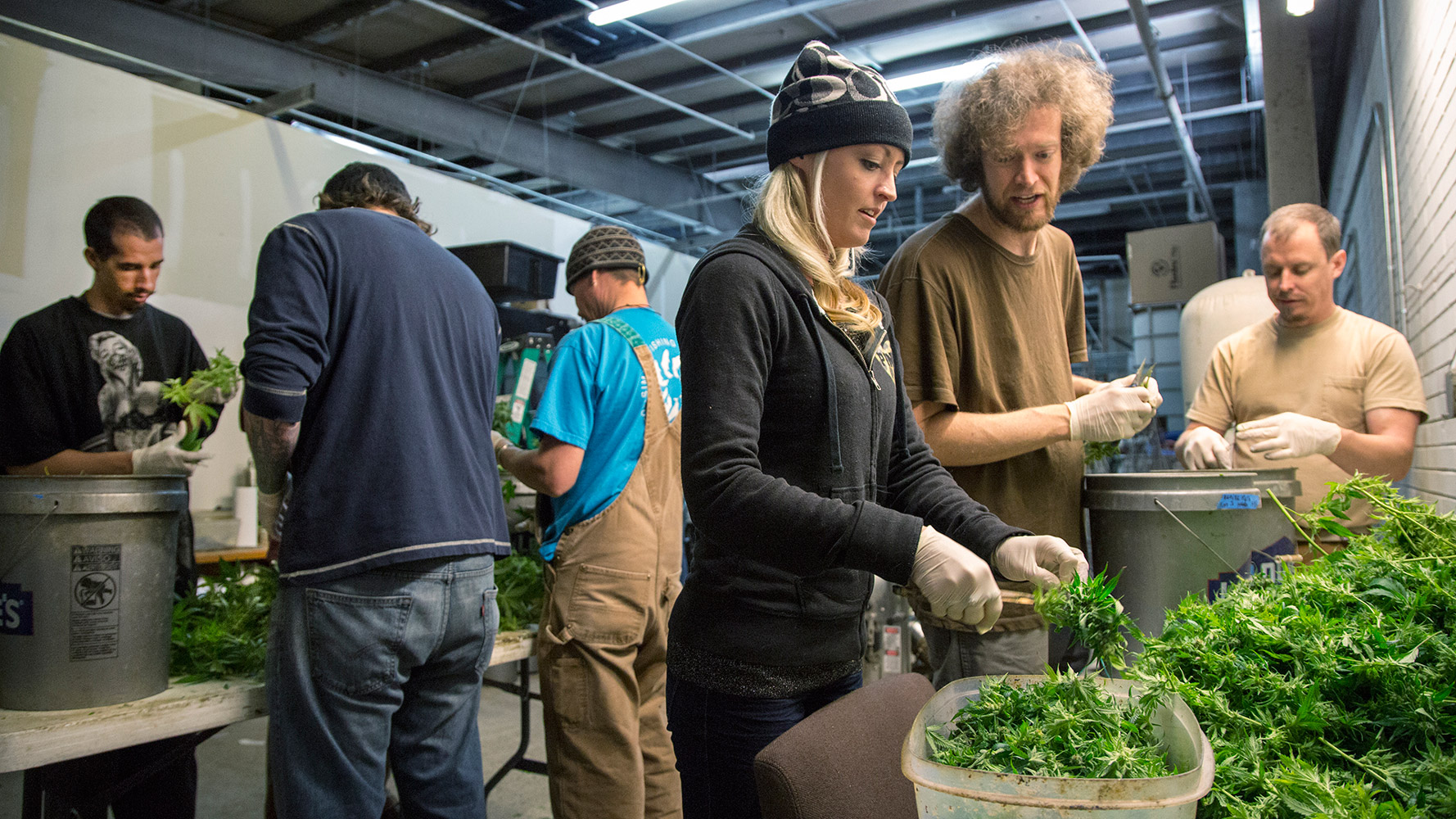Image via
Since the pandemic began, thousands of people have ditched their low-paying retail and restaurant gigs and taken up new jobs in the rapidly expanding cannabis industry.
Before the pandemic, retailers and restaurant owners had no problem finding people willing to work long hours for low pay. But as soon as lockdown measures took effect last spring, many workers had a sudden wealth of free time to reconsider their careers. Once stores began reopening, employers found that fewer people were willing to apply for low-paying jobs, and a growing number of existing employees were quitting to find better work.
This April, around 649,000 Americans quit their retail jobs, the largest number of resignations that the Department of Labor has ever recorded in a single month. Exhausted from working long, inconsistent hours for low pay and no benefits, many former retail employees are setting their sights on better jobs. Some former employees have been finding new jobs at insurance agencies, banks, and local government agencies, but others are finding work in the vastly expanding cannabis sector.
The US weed industry currently employs 321,000 full-time workers, twice as many as it did in 2018, according to an annual job report by Leafly and Whitney Economics. As of this year, there are more weed industry workers than EMTs, paramedics, dentists, or electrical engineers, and in Michigan, cannabis employees outnumber cops. Last year, the industry added 77,300 full-time jobs, and will certainly be adding many more in the near future, especially since seven more states just legalized adult-use sales.
“There has been a seismic shift of workers from retail and restaurants to cannabis,” said Kara Bradford, chief executive of cannabis recruiting firm Viridian Staffing, to The Washington Post. “There is a sense that this is a booming industry that’s fun and interesting, with a lot of opportunities to move up quickly.”
Bradford said that the average cannabis dispensary pays between $12 to $15 an hour, around the same pay that most warehouse and retail jobs offer. But unlike these traditional jobs, pot industry startups often give entry-level employees a chance to advance to higher-paying positions within a year or less.
“It is so rare to have an opportunity to shape an industry from its inception,” said Economic Policy Institute analyst David Cooper to The Post. “There is an urgency to establish guardrails now, for well-paying, middle-class jobs, before cannabis is legalized federally and really takes off. Otherwise these jobs could quickly start to look like existing retail and agriculture jobs, which are often times the worst jobs in the economy.”
Other major businesses outside of the cannabis industry are also trying to attract new employees by doing away with zero-tolerance marijuana workplace policies. Most notably, Amazon stopped conducting pre-employment and random cannabis drug testing for its employees this spring. Since then, the shipping mega-corporation has invited former employees who were fired for smoking weed to reapply and encouraged its delivery partners to stop testing their own employees for pot.











